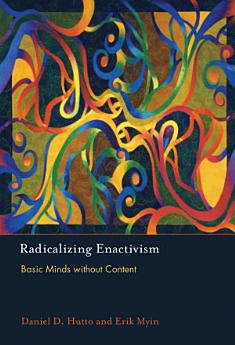Radicalizing Enactivism: Basic Minds without Content
អំពីសៀវភៅអេឡិចត្រូនិកនេះ
Most of what humans do and experience is best understood in terms of dynamically unfolding interactions with the environment. Many philosophers and cognitive scientists now acknowledge the critical importance of situated, environment-involving embodied engagements as a means of understanding basic minds—including basic forms of human mentality. Yet many of these same theorists hold fast to the view that basic minds are necessarily or essentially contentful—that they represent conditions the world might be in. In this book, Daniel Hutto and Erik Myin promote the cause of a radically enactive, embodied approach to cognition that holds that some kinds of minds—basic minds—are neither best explained by processes involving the manipulation of contents nor inherently contentful. Hutto and Myin oppose the widely endorsed thesis that cognition always and everywhere involves content. They defend the counter-thesis that there can be intentionality and phenomenal experience without content, and demonstrate the advantages of their approach for thinking about scaffolded minds and consciousness.
អំពីអ្នកនិពន្ធ
Erik Myin is Professor of Philosophy at the University of Antwerp and coauthor of Radicalizing Enactivism: Basic Minds without Content (MIT Press).




